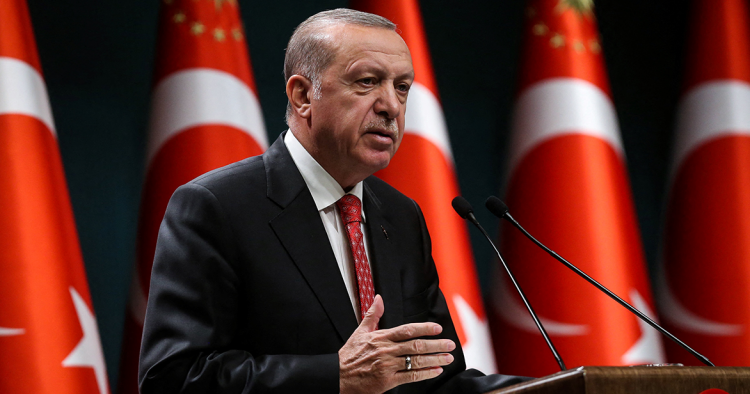The old idea that autocracies are better than raucous democracies at getting things done found new life during the coronavirus pandemic. Many Western commentators argued that while democracies dithered and debated, autocracies were quick to respond and mobilize their resources. Sometimes that might be true—but only if you are the right kind of autocracy. President Recep Tayyip Erdogan’s Turkey, it turned out, is not one of them.
Erdogan’s response to the country’s devastating earthquake on Feb. 6 was painfully slow and uncoordinated. But regimes in which power is centralized are supposed to be fast and organized. All Erdogan had to do was pick up the phone and order his commanders to dispatch NATO’s second-largest army to the badly hit cities, mobilize the bureaucracy to send much-needed aid, and deploy emergency response teams. He did not. Just minutes after the 7.8 magnitude earthquake hit 10 Turkish provinces, troops stood ready to step in and take part in search and rescue operations. Yet in the critical early hours, the order from the top never came. Nor did Turkey’s Disaster and Emergency Management Presidency (AFAD) rush to help the victims. Why?
In a brilliant book, Timothy Frye tells us that strongmen are not as strong as we all think. Being an autocrat is no easy feat. Autocratic leaders, particularly in personalist autocracies such as Turkey’s, face trade-offs. They mobilize support by promising to get things done, but the things they must do to build their one-person rule end up undermining their capacity to deliver on that promise. One of the first things strongmen do when they centralize power is weaken institutions. But weak institutions make it difficult for them to govern, which eventually undermines their strongman rule.
Erdogan, in his 20 years at the helm, has hollowed out the country’s institutions and placed incompetent loyalists in key positions to centralize power in his own hands. This made Erdogan the strongest man in the country but left the state barely functioning. One of the most striking examples of institutional erosion is Erdogan’s suppression of the Turkish military, which went far beyond the legitimate aim of limiting the generals’ role in politics.
Continue reading on Foreign Policy
Photo by ADEM ALTAN/AFP via Getty Images
The Middle East Institute (MEI) is an independent, non-partisan, non-for-profit, educational organization. It does not engage in advocacy and its scholars’ opinions are their own. MEI welcomes financial donations, but retains sole editorial control over its work and its publications reflect only the authors’ views. For a listing of MEI donors, please click here.













